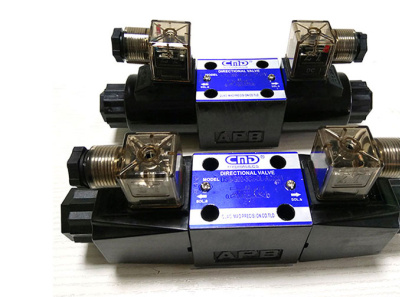Hydraulic solenoid valve
A hydraulic solenoid valve is an automatic electric valve that controls the flow of a fluid such as water or oil. In fact, this valve automatically shuts off and connects the fluid flow. These valves, which are also known as automatic control valves, are produced in different types that have various industrial applications.
Hydraulic solenoid valves are commonly used in hydraulic systems to control the flow of hydraulic fluid. Like any technology, they have their own advantages and disadvantages. Here are some of the key ones:
Advantages:
1. Quick Response: Solenoid valves can operate at high speeds, which means they can open and close quickly in response to changes in the system. This makes them ideal for systems that require precise control.
2. Accurate Control: The quick response of solenoid valves also means they can provide accurate control of flow rates and pressures. This can help to reduce waste and improve system efficiency.
3. Low Power Consumption: Solenoid valves typically require very little power to operate, which can help to reduce energy costs and make them more environmentally friendly.
4. Versatility: Solenoid valves come in a wide variety of configurations, which means they can be used in a variety of hydraulic systems, including those that operate at high temperatures and pressures.
5. Low Maintenance: Solenoid valves are typically low maintenance, requiring only occasional cleaning and inspection to ensure proper operation.
Disadvantages:
1. Limited Flow Rates: Solenoid valves are generally limited in terms of the maximum flow rates they can handle. This means they may not be suitable for systems that require high flow rates.
2. Limited Pressure Range: Solenoid valves are also limited in terms of the maximum pressure they can handle. This means they may not be suitable for systems that operate at very high pressures.
3. Not Suitable for Some Fluids: Some solenoid valves may not be suitable for use with certain types of hydraulic fluids, which can limit their versatility.
4. Potential for Failure: Solenoid valves rely on electrical signals to operate, which means they can be susceptible to electrical interference and other issues that can cause them to fail.
5. Cost: Solenoid valves can be more expensive than other types of valves, which can make them less attractive for some applications.
For more information, visit the following link:
https://hydkala.com/product-category/valve/hydraulic-solenoid-valve/
